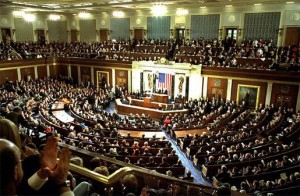Date: August 24, 2015 at 3:54:09 PM CDT
Subject: Rep. John Lewis Dear Colleague on Brent Scowcroft Op-Ed in Washington Post
Dear Colleague,
As elected representatives, we are sometimes faced with a vote of conscience – a personal moral decision that rises
above politics and partisanship. In a few short weeks, Members will need to report the results from their
executive sessions with themselves and their constituents on the question of Iran.
As a supporter of the Joint Comprehensive Plan of Action (JCPOA), I write to share an Op-Ed in the Washington
Post written by Brent Scowcroft, who served as national security adviser to Presidents Gerald Ford and George
H.W. Bush. Over the years, I have not always agreed with him on domestic and international policy, but I
believe that on this question and in this instance, Mr. Scowcroft presents a particularly strong case on the
lack of an alternative to the agreement with Iran.
In the piece, entitled “The Iran deal: An epochal moment that Congress shouldn’t squander,” Mr. Scowcroft comes to
the same conclusion that many in our Caucus have: the Iran Nuclear Agreement is the best available option to
block Iran’s pathway to a nuclear weapon.
As Mr. Scowcroft writes, “In my view, the JCPOA meets the key objective, shared by recent administrations of both
parties, that Iran limit itself to a strictly civilian nuclear program with unprecedented verification and
monitoring by the International Atomic Energy Agency and the U.N. Security Council.”
“There is no credible alternative were Congress to prevent U.S. participation in the nuclear deal. If we walk away,
we walk away alone,” Mr. Scowcroft continues. “The world’s leading powers worked together effectively because
of U.S. leadership. To turn our back on this accomplishment would be an abdication of the United States’ unique
role and responsibility, incurring justified dismay among our allies and friends. We would lose all leverage over
Iran’s nuclear activities. The international sanctions regime would dissolve. And no member of Congress should be
under the illusion that another U.S. invasion of the Middle East would be helpful.”
I hope you find this information useful as you continue to weigh your vote on the JCPOA.
Sincerely,
/s/
JOHN LEWIS
Member of Congress
___________________
The Washington Post
The Iran deal: An epochal moment that Congress shouldn’t squander
August 23, 2015
By: Brent Scowcroft
Scowcroft was national security adviser to Presidents Gerald Ford and George H.W. Bush.
Congress again faces a momentous decision regarding U.S. policy toward the Middle East. The forthcoming vote on the
nuclear deal between the P5+1 and Iran (known as the Joint Comprehensive Plan of Action, or JCPOA) will show the
world whether the United States has the will and sense of responsibility to help stabilize the Middle East, or
whether it will contribute to further turmoil, including the possible spread of nuclear weapons. Strong words
perhaps, but clear language is helpful in the cacophony of today’s media.
In my view, the JCPOA meets the key objective, shared by recent administrations of both parties, that Iran limit
itself to a strictly civilian nuclear program with unprecedented verification and monitoring by the International
Atomic Energy Agency and the U.N. Security Council. Iran has committed to never developing or acquiring a nuclear
weapon; the deal ensures that this will be the case for at least 15 years and likely longer, unless Iran repudiates
the inspection regime and its commitments under the Treaty on the Non-Proliferation of Nuclear Weapons and
Additional Protocol.
There is no more credible expert on nuclear weapons than Energy Secretary Ernest Moniz, who led the technical
negotiating team. When he asserts that the JCPOA blocks each of Iran’s pathways to the fissile material necessary
to make a nuclear weapon, responsible people listen. Twenty-nine eminent U.S. nuclear scientists have endorsed
Moniz’s assertions.
If the United States could have handed Iran a “take it or leave it” agreement, the terms doubtless would have been
more onerous on Iran. But negotiated agreements, the only ones that get signed in times of peace, are compromises
by definition. It is what President Reagan did with the Soviet Union on arms control; it is what President Nixon
did with China.
And as was the case with specific agreements with the Soviet Union and China, we will continue to have significant
differences with Iran on important issues, including human rights, support for terrorist groups and meddling in the
internal affairs of neighbors. We must never tire of working to persuade Iran to change its behavior on these
issues, and countering it where necessary. And while I believe the JCPOA, if implemented scrupulously by Iran, will
help engage Tehran constructively on regional issues, we must always remember that its sole purpose is to halt the
country’s nuclear weapons activities.
Israel’s security, an abiding U.S. concern, will be enhanced by the full implementation of the nuclear deal. Iran
is fully implementing the interim agreement that has placed strict limits on its nuclear program since January 2014
while the final agreement was being negotiated. If Iran demonstrates the same resolve under the JCPOA, the world
will be a much safer place. And if it does not, we will know in time to react appropriately.
Let us not forget that Israel is the only country in the Middle East with overwhelming retaliatory capability. I
have no doubt that Iran’s leaders are well aware of Israel’s military capabilities. Similarly, the Gulf Cooperation
Council (GCC) members have impressive conventional militaries, and the United States is committed to enhancing
their capabilities.
Congress rightfully is conducting a full review and hearing from proponents and opponents of the nuclear deal.
However, the seeming effort to make the JCPOA the ultimate test of Congress’s commitment to Israel is probably
unprecedented in the annals of relations between two vibrant democracies. Let us be clear: There is no credible
alternative were Congress to prevent U.S. participation in the nuclear deal. If we walk away, we walk away alone.
The world’s leading powers worked together effectively because of U.S. leadership. To turn our back on this
accomplishment would be an abdication of the United States’ unique role and responsibility, incurring justified
dismay among our allies and friends. We would lose all leverage over Iran’s nuclear activities. The international
sanctions regime would dissolve. And no member of Congress should be under the illusion that another U.S. invasion
of the Middle East would be helpful.
So I urge strongly that Congress support this agreement. But there is more that Congress should do. Implementation
and verification will be the key to success, and Congress has an important role. It should ensure that the
International Atomic Energy Agency, other relevant bodies and U.S. intelligence agencies have all the resources
necessary to facilitate inspection and monitor compliance. Congress should ensure that military assistance,
ballistic missile defense and training commitments that the United States made to GCC leaders at Camp David in May
are fully funded and implemented without delay. And it should ensure that the United States works closely with the
GCC and other allies to moderate Iranian behavior in the region, countering it where necessary.
My generation is on the sidelines of policymaking now; this is a natural development. But decades of experience
strongly suggest that there are epochal moments that should not be squandered. President Nixon realized it with
China. Presidents Reagan and George H.W. Bush realized it with the Soviet Union. And I believe we face it with Iran
today.

 The debate regarding the proposed nuclear deal with Iran reminded me of a meeting I participated
in with Daniel Kurtzer, then U.S. Ambassador to Israel under George W. Bush, at the U.S. Embassy in Tel Aviv in
2007. Though I’ve been to Israel several times, both before and after, our meeting stood out in my memory,
helping me to separate politics from facts in considering the proposed nuclear deal.
The debate regarding the proposed nuclear deal with Iran reminded me of a meeting I participated
in with Daniel Kurtzer, then U.S. Ambassador to Israel under George W. Bush, at the U.S. Embassy in Tel Aviv in
2007. Though I’ve been to Israel several times, both before and after, our meeting stood out in my memory,
helping me to separate politics from facts in considering the proposed nuclear deal.